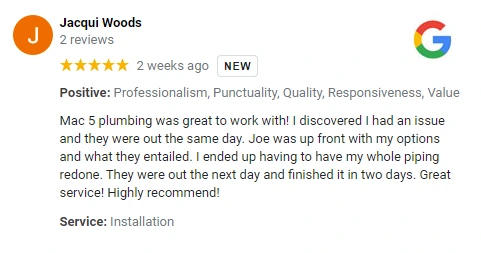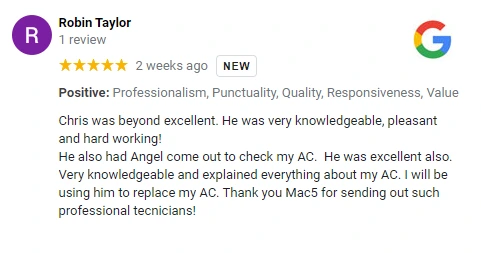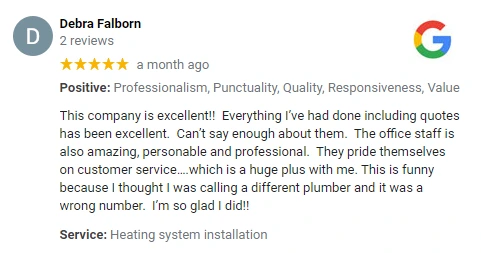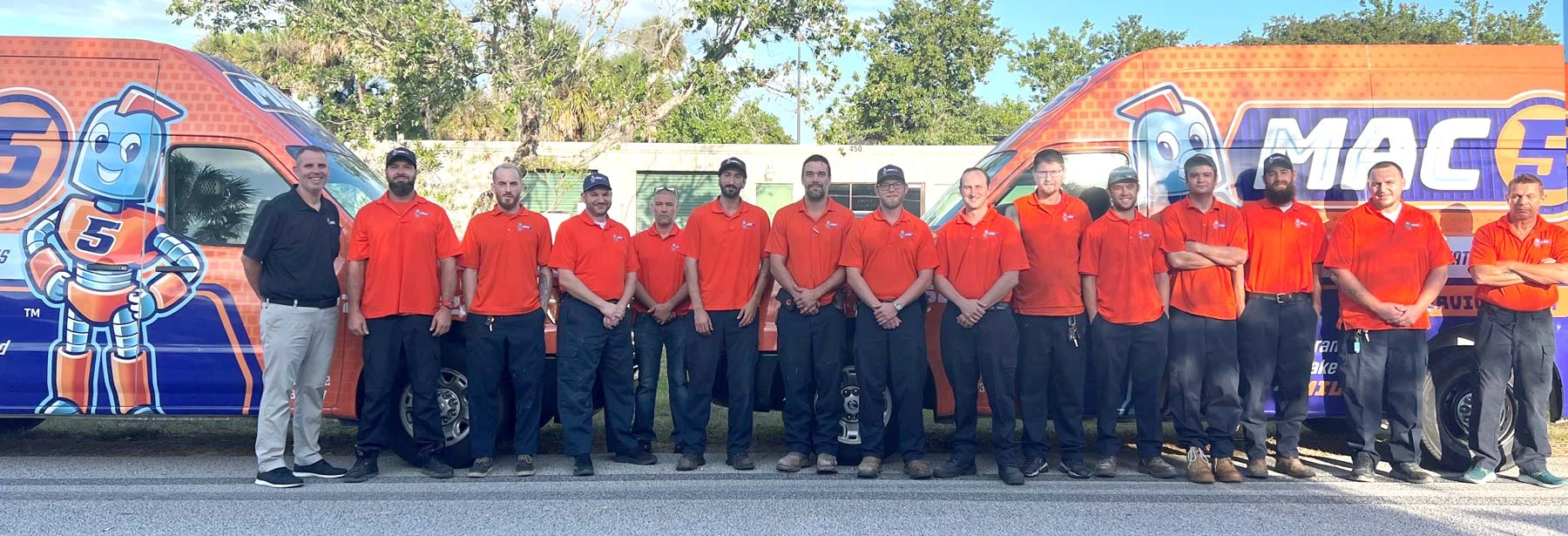Have you ever gone to take a hot shower only to be met with lukewarm water?
Or have you been trying to do the dishes and found that your hot water just needs to get hotter?
If so, you know how frustrating it can be for many homeowners when water takes too long to heat up.
There are several reasons your hot water takes too long to heat up. This article explores these reasons and offers you solutions to each situation.
Reasons Why Hot Water Takes Too Long to Get Hot
Reason 1: Blown Fuse or Insufficient Gas
There are two common types of water heaters: gas heaters and electric heaters. Both have varying levels of efficiency. However, they serve the same purpose in every household:
To provide households with hot water.
Like every other appliance, gas and electric heaters are susceptible to occasional faulty parts.
If your gas water heater is taking too long to heat or doesn’t heat water, it could mean the unit is out of gas. Alternatively, it could mean that its pilot light may have gone out.
Meanwhile, if you have an electric heater, the likely culprit could be a blown fuse or tripped circuit breaker. Check the circuit box where your water heater is connected to see if the switch has accidentally been turned off.
Contact a professional HVAC technician if you’re unsure what to do in this situation.
Reason 2: Old Water Heater
Traditional water heaters have a lifespan of 10 to 15 years with proper maintenance and care. Meanwhile, tankless water heaters can last longer—up to 20 years or more.
Without proper upkeep, water heater components can give out due to wear and tear. This could be why your water heater is no longer functioning at optimum levels.
If your traditional water heater is over 10 years old and is no longer functioning correctly, it might be time to replace it with a new unit.
On the other hand, if you have a tankless water heater that’s over 20 years old and not heating well, consider getting a new system.
Contact a professional for assistance in looking for the suitable unit.
Reason 3: Sediment Buildup in the Water Heater Tank
Sediment buildup in your water heater tank can cause several problems—like your water heater taking too long to heat water. Minerals like calcium and magnesium can block heat transfer, preventing your water heater from doing its job.
Sediments often accumulate at the bottom of water heater tanks. This is typically where the heating element or gas burner is. It’s what the water heater uses to create hot water.
Unfortunately, this buildup can slowly corrode and damage your water heater components. As such, it reduces your water heater’s overall reliability.
Not only does sediment buildup affect your ability to get hot water quickly, but it can also increase the energy costs associated with operating a water heater.
Frequent maintenance from a professional plumber will ensure that any accumulated sediment is removed swiftly and effectively, saving you time and money in the long run.
What is a Tankless Water Heater?
Tankless water heaters are an energy-saving marvel, providing hot water at lightning speed without needing preheating or storage. In other words, you can get instant hot water, reduce water wasted, and lower your water bill.
If the flow of hot water to your shower takes too long, a tankless water heater might be the best solution for you.
Reason 4: Wrong-Sized Hot Water Heater
Small water heaters are advantageous for smaller households. You can easily and quickly get the right water temperature when you shower, do laundry, or wash dishes. Plus, they don’t hurt your pocket when utility bills are due.
Most residential water heaters only have a capacity of 40 gallons (151 liters). This allows residential water heater tanks to fit into small, tight areas. Unfortunately, when several people use hot water in one house, the water stored inside the tank can quickly run out.
Gas water heaters heat water much faster than electric models. Meaning, it can replenish the supply in the hot water tank more quickly. However, it won’t make that much difference if your water tank is still too small for your household.
Consider installing a larger-capacity water heater in your home. With a bigger water heater, you won’t have to worry about running out of hot water during busy days or large family gatherings.
If getting a bigger water heater is not an option, getting a tankless water heater is also a great alternative. Tankless water heaters require less maintenance, as it doesn’t store water in tanks like traditional water heaters.
Furthermore, it heats water almost instantly, so you can get hot water on demand.
If you’re unsure of the best option, don’t hesitate to talk to a professional.
Reason 5: Fixtures Too Far From Water Heater
The location of your water heater plays a key role in the overall performance of its hot water delivery. If it’s too far away from the fixtures, it will take longer for hot water to travel from the water heater to your faucets.
If you have noticed a slower flow rate of hot water at one fixture but other fixtures are perfectly fine, it indicates that the water heater may be too far.
To solve this issue, move the water heater closer to the fixtures. If that’s not an option, consider installing a hot water recirculating system to the furthest fixture in your home.
What is a Hot Water Recirculation System?
A hot water recirculation system is a plumbing device that supplies hot water to your taps and fixtures.
Using a hot water recirculation pump, water can be moved from the water heater back to the fixtures so that homeowners can avoid hot water delays.
It also saves you from wasting water by eliminating the need to run cold water down the drain while waiting for the hot water.
If you need a hot water recirculating system installed in your home, contact a professional plumber for further advice. They can assess your hot water needs and recommend the best solution for getting hot water fast.
Reason 6: Wrong Hot Water Heater Settings
Only some people know exactly how to operate their thermostats. So, it’s easy for people to accidentally input the wrong water heater settings. It’s not that your water heater takes too long to heat water—it’s just following orders from your thermostat.
Fortunately, you can adjust the settings with a few simple steps:
- Start by locating your water heater and turning off the power at the circuit breaker. Wear gloves and safety glasses to protect your hands and eyes from hazards.
- Find the access panel for the thermostat and gently remove it using a screwdriver.
- Carefully peel back any insulation material that may cover the thermostat. It is vital that you don’t damage it or any other water heater components while doing this.
- Using a flathead screwdriver, turn the adjusting dial clockwise or counterclockwise to adjust either of the thermostats (if your water heater has two). For best results, adjust both thermostats equally and ensure that the top thermostat is set a few degrees higher than the bottom one.
- Once you have made all desired adjustments, replace any insulation you removed earlier and securely reinstall the access panel with screws.
- Restore power to your water heater by turning on the circuit breaker. If you have a gas water heater, you may need to relight its pilot light according to manufacturer instructions.
Wait at least three hours before testing your newly adjusted water temperature to ensure everything is working correctly and that you have achieved your desired temperature level. You can make further adjustments until your desired results are achieved.
How Long Should It Take for Hot Water to Heat Up?
The length of time it takes for you to get hot water depends on several factors, including:
- Its distance from fixtures
- Its surrounding temperature
- Its size
- Its output power
- Its configuration
If the water heater is installed in an attic, it can take one to two minutes for hot water to reach a faucet or shower near the top of a house.
During winter, the chilling conditions cause plumbing pipes to contract. This can cause the water flow rate to slow down further, resulting in longer wait times for hot water.
The size of your water heater can also affect how much hot water it can supply. As mentioned, a smaller water heater can hold less water than a larger unit.
Thus, you can run out of hot water easily, especially if you have many people using it at home.
Nevertheless, the water heater’s output power also influences all these factors.
As mentioned, gas water heaters can heat water much faster compared to electric heaters. Meaning it can replenish supplies much faster than electric models.
You can further increase the output power by getting a tankless water heater. Tankless heaters can provide almost instant hot water to users.
In other words, you can experience less waiting time than if you had a traditional unit.
Get Routine Preventative Maintenance
Mac 5 Services offers a variety of heating, cooling, and plumbing solutions for homeowners. From water heater repair to complete hot water system upgrades and replacements—we can help you find the best fixes for your needs.
Our technicians are certified and skilled at providing reliable services with efficiency in mind. We understand the importance of having hot water in your home—especially during winter.
We strive to troubleshoot and solve any cooling, heating, and plumbing issues quickly and economically. Reach out to us today for more information about our full range of plumbing services.
Contact Us at (321) 244-7500
We’re excited to work with you!



